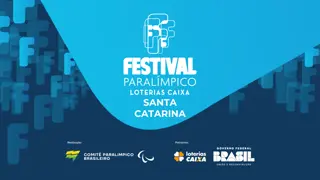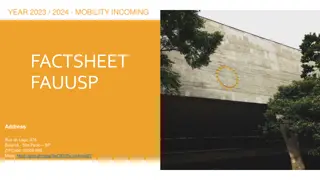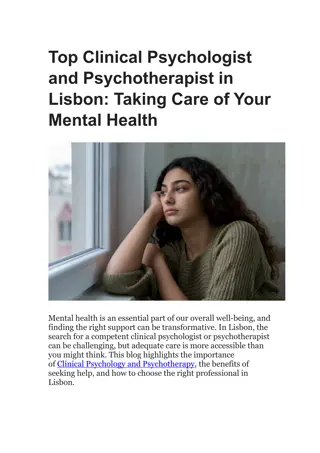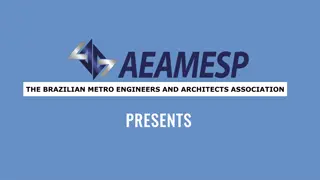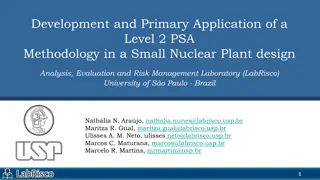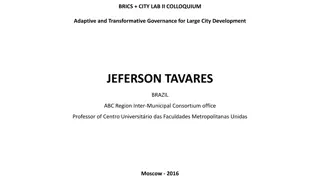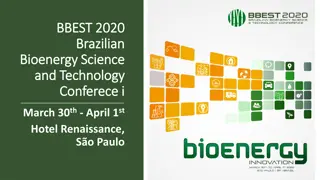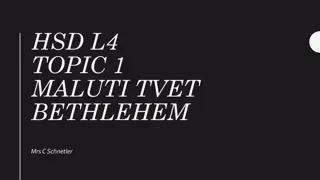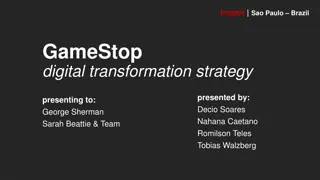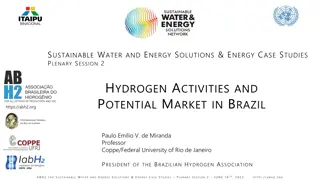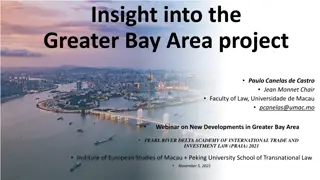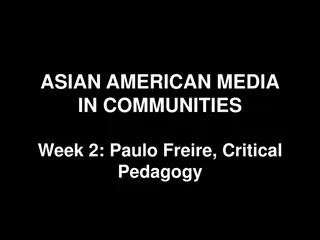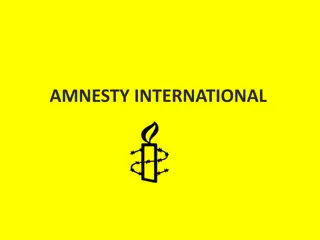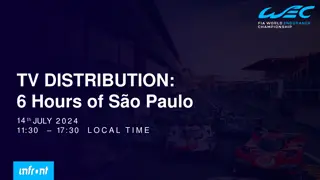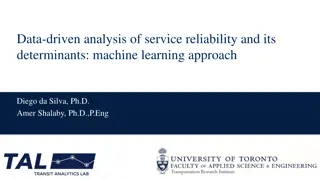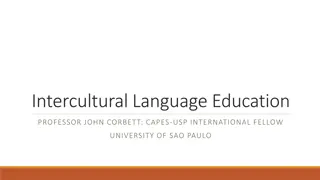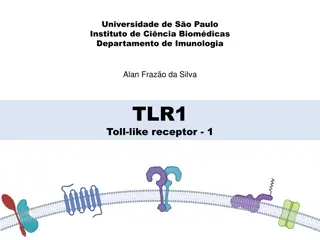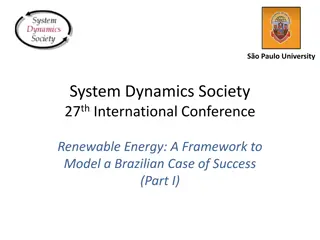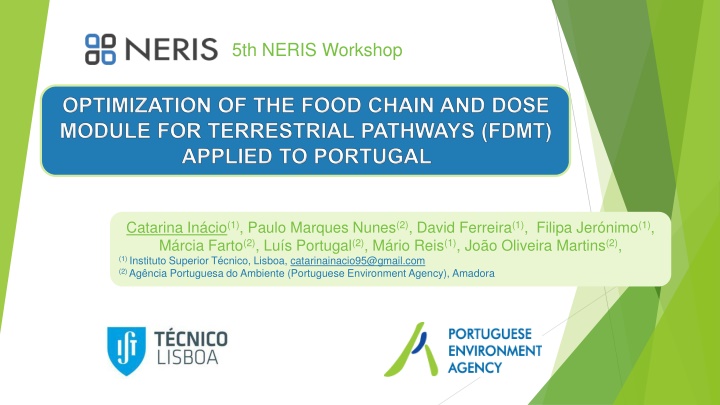
Optimizing Radiological Safety with JRODOS FDMT Model in Portugal
This work discusses the adaptation of the JRODOS FDMT model to the Portuguese case, focusing on a Mediterranean diet and commonly consumed foodstuffs. By simulating the transfer of radionuclides in food chains, it aims to reduce human exposure and enhance radiological protection and nuclear safety. The study emphasizes the importance of considering high-consumption items like olives and grapes, which are not currently included in the model.
Download Presentation

Please find below an Image/Link to download the presentation.
The content on the website is provided AS IS for your information and personal use only. It may not be sold, licensed, or shared on other websites without obtaining consent from the author. If you encounter any issues during the download, it is possible that the publisher has removed the file from their server.
You are allowed to download the files provided on this website for personal or commercial use, subject to the condition that they are used lawfully. All files are the property of their respective owners.
The content on the website is provided AS IS for your information and personal use only. It may not be sold, licensed, or shared on other websites without obtaining consent from the author.
E N D
Presentation Transcript
5th NERIS Workshop Catarina In cio(1), Paulo Marques Nunes(2), David Ferreira(1), Filipa Jer nimo(1), M rcia Farto(2), Lu s Portugal(2), M rio Reis(1), Jo o Oliveira Martins(2), (1) Instituto Superior T cnico, Lisboa, catarinainacio95@gmail.com (2) Ag ncia Portuguesa do Ambiente (Portuguese Environment Agency), Amadora
This work represents part of the Masters thesis of Catarina Incio on Radiological Safety and Protection INTRODUCTION The Chernobyl accident demonstrated deficiencies regarding the radiation protection requisites. Due to that, it was created the Real-time Online DecisiOn Support system, JRODOS. Need to optimize FDMT model for South Europe diet Default diet data Central Europe OBJECTIVE Adaptation of JRODOS FDMT model to the Portuguese case considering a Mediterranean diet and the most consumed and exported foodstuffs.
METHODOLOGY Intervention Levels FDMT Model Simulates the transfer of radionuclides and exposure in food chains and evaluates the dose by the relevant pathways Harm caused by banning the consumption of food Benefit caused by allowing the consumption of food Provides information during all phases and prepare for a future event EXPECTED RESULTS Reducing human exposure due to food consumption Olives (olive oil) and grapes (wine) have a high consume rate and they are not considered in the model. Optimization of the model will contribute radiological protection and nuclear safety to the Help to mitigate the consequences

